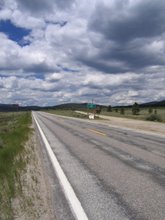This anger is ugly, and even if the man were evil—wishing him death— but wishing suffering on his children? But it’s in there, in our Psalms.
It’s so offensive to find this, in fact, that NRSV thinks it is not even in there: it puts these words in the mouth of the bad guys, adding in, “they say” at the beginning on really limited textual evidence. It’s controversial.
I think it’s important that we remember that the ugliness is in there, not because it tells us something good and true about God, but because it tells us something about what the psalms are, what the bible is.
The Bible is rough—it doesn’t paint a picture of a lovely world, of perfect people, or even a perfect God. The Old Testament is full of people haggling with God—“God, what if I can find just one nice person, can you hold off your wrath?” Jesus gets snippy, and makes some ethnic comments about Gentiles (comparing them to dogs) that are probably not a good model for, say, the Mideast peace process.
The bible isn’t always an instruction manual for living, and perhaps the psalms aren’t always the best model for prayer.
The best way I have to think about the Bible is as an entryway to discover God, a testimony of many author’s perceived experience of God. Sometimes they think God does strange things, many time they think God does wonderful, beautiful things, and few describe a God doing evil things.
The Bible is an entryway because it invites me, or forces me, to think about God in a way that I hadn’t before. Sometimes I’m stumped or resistant—I’m still working on loving my enemies, and I’m somewhere more in the range of praying for them. But other times, the stories set my heart afire, the stories of Jesus’ promised commonwealth.
Each week we pray a psalm, learning and sharing in the prayers of our ancestor. They say things about God that are beautiful, that are longing—a few weeks ago we prayed:
May there be no invasion, no exile, and no cry of distress in our streets
These psalms give us language to speak to God: “My heart is pierced within me”.
And so here we have Psalm 109, a human psalm if ever there was one. These are feelings we probably know, feelings I know. The Psalm invites us to see those feelings in another, to reflect on those feelings theologically, to bring those feelings before God. Maybe we don’t want to end where the author of Psalm 109 ended. And that might be the value of this “dirty” psalm— we see this hate in another, and so we bring our hate before God, and say: here it is, help me, heal me, show me a way forward.
May God grant us wisdom and peace in our prayers. Amen.

No comments:
Post a Comment